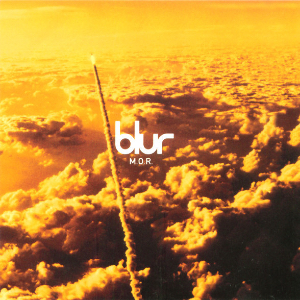
"M.O.R." is a song by English rock band Blur from their eponymous album. Released on 15 September 1997, "M.O.R." reached number 15 in the UK Singles Chart on its release as a single in 1997. Worldwide, it reached number 45 in New Zealand and also charted in Australia, Canada, and the United States.

"Connection" is a song by Britpop group Elastica. It was originally released on 10 October 1994 as a single and included on their self-titled debut album in 1995. The song debuted and peaked at number 17 on the UK Singles Chart and became one of the few Britpop songs to gain popularity in North America, reaching number 53 on the US Billboard Hot 100, number two on the Billboard Modern Rock Tracks chart, and number nine on the Canadian RPM Top Singles chart.

"Strange Currencies" is a song by American rock band R.E.M.. It was included on their ninth studio album, Monster (1994), and was released as the album's third single on April 18, 1995. The single reached number nine on the UK Singles Chart and peaked at number 47 in the United States. Like "Everybody Hurts" on R.E.M.'s previous album, it has a time signature of 6
8.

"Tongue" is a song by R.E.M., released as the fifth and final single from their ninth studio album, Monster (1994), on July 17, 1995. It was only released in the US, UK, and Ireland. In the song, lead singer Michael Stipe performs in falsetto; he has stated on several occasions that the narrator of the song is female. Stipe has also said the track is "all about cunnilingus."
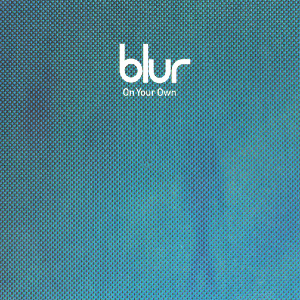
"On Your Own" is a song by English rock band Blur. It was released as a single on 16 June 1997 from the band's fifth studio album, Blur (1997). It charted at number five on the UK Singles Chart. Although it was not released exclusively under the name, Damon Albarn, frontman of both musical projects, has since referred the song as 'one of the first ever Gorillaz tunes'.

"Stereotypes" is a song by English alternative rock band Blur and is the opening track to their fourth studio album, The Great Escape (1995). It was released on 12 February 1996 as the third single from that album, charting at number seven on the UK Singles Chart. It also became a minor hit in Australia, peaking at number 95 on the ARIA Singles Chart in June 1996. The accompanying UK B-sides—"The Man Who Left Himself", "Tame" and "Ludwig"—demonstrated a dramatic change in style for Blur, being stark and raw, foreshadowing the stylistic shift that would realize itself on their eponymous follow-up album.

"Oh Yeah" is a song by Northern Irish rock band Ash, released as the fifth single from their debut studio album, 1977 (1996), on 24 June 1996. It was released on CD, 7-inch vinyl, and cassette formats. Upon its release, "Oh Yeah" debuted and peaked at number six on the UK Singles Chart, becoming Ash's second-highest-charting single on the chart following their previous release, "Goldfinger".

"Will You Be There " is a song by American rock band Heart. The ballad was written by veteran songwriter and producer Robert John "Mutt" Lange, who was responsible for writing Heart's US number-two single "All I Wanna Do Is Make Love to You" in 1990, and was released as the first single from the band's eleventh studio album Desire Walks On. Unlike the strong majority of Heart songs, which feature Ann Wilson on lead vocals, the lead singer on the song is Nancy Wilson. The song was released in the United Kingdom in November 1993 and was released in the United States the following month.

"Open Up" is a song recorded by British electronic duo Leftfield featuring John Lydon. It was released as a single on 1 November 1993. The single reached number 13 on the UK Singles Chart, number one on the UK Dance Singles Chart and number 39 in both Australia and New Zealand. NME reported in their 18 September 1993 issue, "This is the record that people have always wanted Lydon to do." In 2014, the same publication ranked "Open Up" at number 444 on their list of the "500 Greatest Songs of All Time".
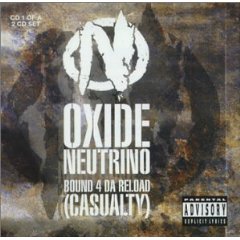
"Bound 4 Da Reload (Casualty)" is a song by British duo Oxide & Neutrino, members of the So Solid Crew. The track features a sample from the theme tune to the BBC medical drama Casualty, composed by Ken Freeman. The duo had not initially gone the correct route to clear the rights to use the Casualty theme, instead calling a BBC receptionist to tell them they were sampling it. When they signed with EastWest Records, the company cleared the sample. The song was first released in 1999 on white label, simply titled "Casualty".
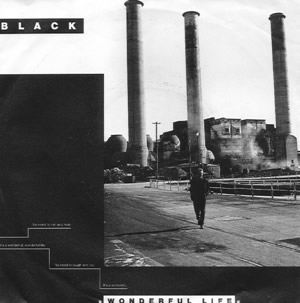
"Wonderful Life" is a song by the English singer Black from his 1986 album of the same name. It was released twice as a single and was successful the second time, becoming a top ten hit in Austria, France, Germany, Italy, Switzerland, the Netherlands and the UK. Black, who wrote the song while broke, commented: "I was really being ironic... Most people took it at face value."

"Lovestruck" is a song by the band Madness. The release marked the first time they had put out original material for over 10 years, and signified their return to music. The song was the lead single from their 1999 album, Wonderful, on 19 July 1999 and was heavily promoted.
"Hard to Handle" is a 1968 song written by American soul singer Otis Redding along with Al Bell and Allen Jones. Originally recorded by Redding, it was released in 1968 as the B-side to "Amen". The song also appears on the 1968 album The Immortal Otis Redding. Redding's version reached No. 38 on the Billboard R&B charts and No. 51 on the pop charts.
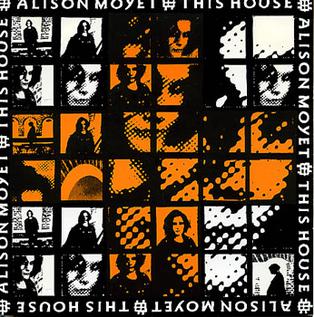
"This House" is a song by the British singer-songwriter Alison Moyet, which was released in 1991 as the fourth single from her third studio album Hoodoo. It was written by Moyet and produced by Dave Dix.
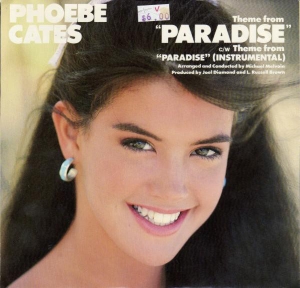
"Paradise" is a song written and produced by L. Russell Brown and Joel Diamond that served as the theme to the 1982 adventure romance film Paradise. The theme is sung by American former actress Phoebe Cates and appears on her 1982 album of the same name. It was released as a single and reached number one in Italy. In 2001, American former singer Kaci covered the theme for her first studio album, Paradise (2001), and released it as her debut single the same year. Kaci's version became a hit in the United Kingdom, where it peaked at number 11 on the UK Singles Chart.
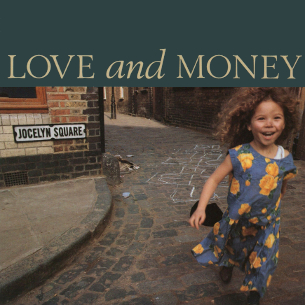
"Jocelyn Square" is a song by Scottish band Love and Money, which was released in 1989 as the third single from their second studio album Strange Kind of Love. The song was written by James Grant and Bobby Paterson, and produced by Gary Katz. "Jocelyn Square" reached No. 51 in the UK Singles Chart and remained in the Top 100 for four weeks.
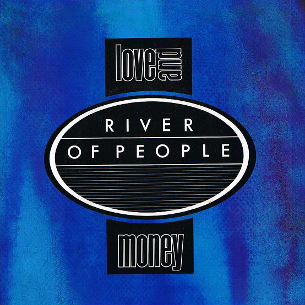
"River of People" is a song by Scottish band Love and Money, which was released in 1987 as the third single from their debut studio album All You Need Is.... The song was written by James Grant and Bobby Paterson, and produced by Tom Dowd. "River of People" reached No. 82 in the UK Singles Chart and remained in the Top 100 for four weeks.

"Feel Like Change" is a song by English singer-songwriter Black, which was released by A&M in 1991 as the lead single from his third studio album Black. The song was written by Black and produced by Robin Millar. "Feel Like Change" reached number 56 in the UK Singles Chart and remained in the top 100 for two weeks.
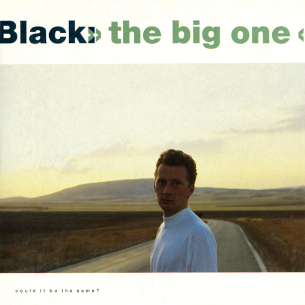
"The Big One" is a song by English singer-songwriter Black, which was released by A&M in 1988 as the lead single from his second studio album Comedy. The song was written by Black and produced by Dave "Dix" Dickie. "The Big One" reached number 54 in the UK Singles Chart and remained in the top 100 for four weeks.

"I'm Not Afraid" is a song by English singer-songwriter Black, which was released in 1987 as the fourth single from his debut studio album Wonderful Life. The song was written by Black and Dave "Dix" Dickie, and produced by Robin Millar. "Paradise" reached number 78 in the UK Singles Chart and remained in the top 100 for three weeks.



















